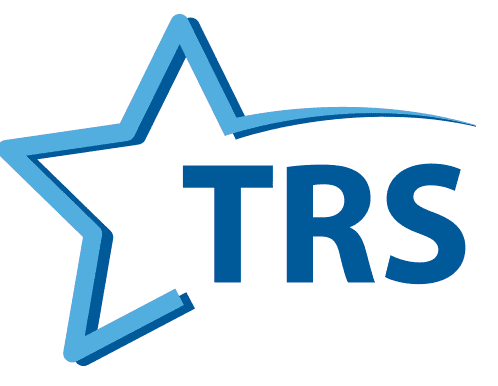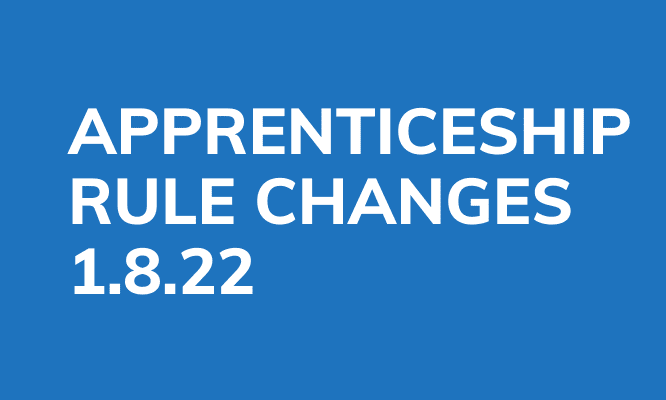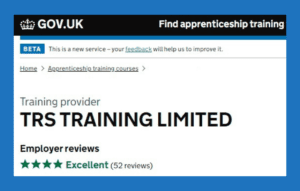From 1 August, some significant apprenticeship rule changes come into play as a result of updated funding rules published by Education Skills Funding Agency (ESFA). The two significant ones that employers need to be aware of are as follows
Off-the-job training
Until today, apprentices had to spend a minimum of 20% of their contracted time undertaking off-the-job training. Now the rule is that they have to undertake a minimum of 20% of a 30-hour baseline, i.e. 6 hours a week.
However, what remains unchanged is that the initial assessment must always guide the amount of off-the-job training that an apprentice undertakes. Therefore, if their assessment shows that a particular apprentice needs more than the minimum 6-hour requirement, then they must undertake the amount of training necessary to address their personal training needs successfully.
It is important to note that this change only applies to apprentices who commence their apprenticeship from the 1st August 2022. All learners starting prior to this date are to continue with the previously agreed hours.
Maths/English requirements
The new rules state that apprentices who start a Level 2 apprenticeship without Level 1 English and maths will no longer need to automatically attempt Level 2 English and maths tests to complete their apprenticeship. This rule is applicable irrespective of the apprentice’s start date and includes apprentices who are already part way through their apprenticeship.
Many of our employers will want to stick to their apprentices achieving level 2 Maths and English. These qualifications provide reassurance as to the skills levels of employees and offer a guarantee for the quality of staff performance and delivery of customer service. Consequently, at TRS, we have set the following guideline:
If an apprentice is within 200 days of the end of their programme upon achieving Level 1 English & Maths, they will continue with their programme, working towards achieving their level 2 qualifications for maths/English.




